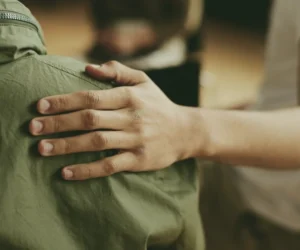
Role-playing allows members to practice responses to difficult situations, such as social events where substances may be present. This activity builds confidence in saying no and equips members with strategies to handle real-life challenges. Creating positive affirmations helps members reinforce self-worth and stay motivated. Members are encouraged to develop personal affirmations and share them with the group, helping everyone build confidence and a positive mindset in recovery.
Mental Health Handouts

These groups further encourage Substance abuse exploration of emotional and interpersonal conflicts, confrontation about denial and harmful behaviors, and discussion about responsibilities and limitations. They add structure to chaotic lives and provide a safe environment in which to practice newly developed skills. By combining education with skill-building exercises, CBT groups provide a comprehensive approach to substance abuse treatment, helping individuals build a strong foundation for their recovery journey.

Role-Playing Scenarios
- Most people getting treatment for substance use disorder benefit from using both group and individual therapy.
- Clients design both outer – what the world sees – and inner – the hidden self – masks.
- Financial stress is common in recovery, often due to past habits or addiction-related expenses.
- Group members can encourage and support one another and provide motivation to keep others on track to recovery.
- Group therapy can focus on various issues, such as anxiety, depression, addiction, grief, or interpersonal difficulties.
Members may be invited to talk about how they cope with stress or instances when they feel unable to. Letting go of hurtful moments and hearing about other people’s experiences can help many gain greater self-awareness. During group therapy, members may be asked to list habits they perceive to be bad. Following this, the group leader may encourage members to identify why they are harmful and what can be done to replace them.
- For many, especially those recovering from addiction, recovery is significantly enhanced by the support and camaraderie found within substance abuse support groups.
- Anger can be a challenging emotion in recovery, often leading to impulsive reactions.
Solution-Focused Brief Therapy Worksheets Bundle
Below is a list of therapy topics and themes that may be used during group therapy for substance use disorders. Although the list is comprehensive, it is by no means a complete list of every topic or theme that may be touched upon during treatment. It’s important for inpatient and outpatient rehab facilities to incorporate beneficial substance abuse group activities. Group therapy is a helpful and effective method substance use group topics of treatment if you conduct it properly. You want to encourage as much participation as possible and there are a few different ways you can do that. In the next half of the group, allow clients to share their posters as the second part of substance abuse group activities.
- Another important component of substance abuse group therapy is the ability to let go of grudges, rigid mindsets, and other unhealthy coping mechanisms that can reinforce reliance on substances.
- Peer recovery groups, like Alcoholics Anonymous (AA) and other 12-step groups, are peer-led, non-professional options for building a support system during recovery.
- This topic allows members to share funny stories, discover joy in small moments, and build bonds with others through laughter.
- A printable deck of cards with 128 coping skills for managing stress, anxiety, and other difficult emotions.
Identifying Coping Mechanisms
For all your therapy practice and substance abuse group activities needs Theraplatform can help. Theraplatform, an EHR, practice management and teletherapy tool built https://ecosoberhouse.com/ for therapists can help you share and organize your materials. Group therapy is a form of psychotherapy where a trained therapist facilitates a therapeutic session involving a small group of individuals who share similar emotional or psychological concerns.
Exploring Healthy Relationships
- Recognizing and changing these behaviors supports a more positive, sustainable recovery journey.
- This topic explores how to develop resilience through positive thinking, stress management, and maintaining optimism.
- As the understanding of addiction continues to evolve, professionals and researchers increasingly recognize the vital contribution support groups make in the holistic recovery process.
- Substance abuse groups offer a wealth of support and help many people maintain long-term addiction recovery.
They noted that specific personal motivations or mindsets may buffer the challenges to sustainable recovery in the college environment. These may inspire the use of support resources, such as reaching out to social networks or engaging with CRPs. Addiction group therapy sessions play a pivotal role in the recovery process for individuals battling substance abuse. These sessions offer a supportive environment where participants can share experiences, learn from each other, and develop coping strategies. Selecting engaging and relevant substance abuse topics is crucial to facilitating meaningful discussions and promoting personal growth. They can also discuss any recent challenges or successes related to their recovery journey.
